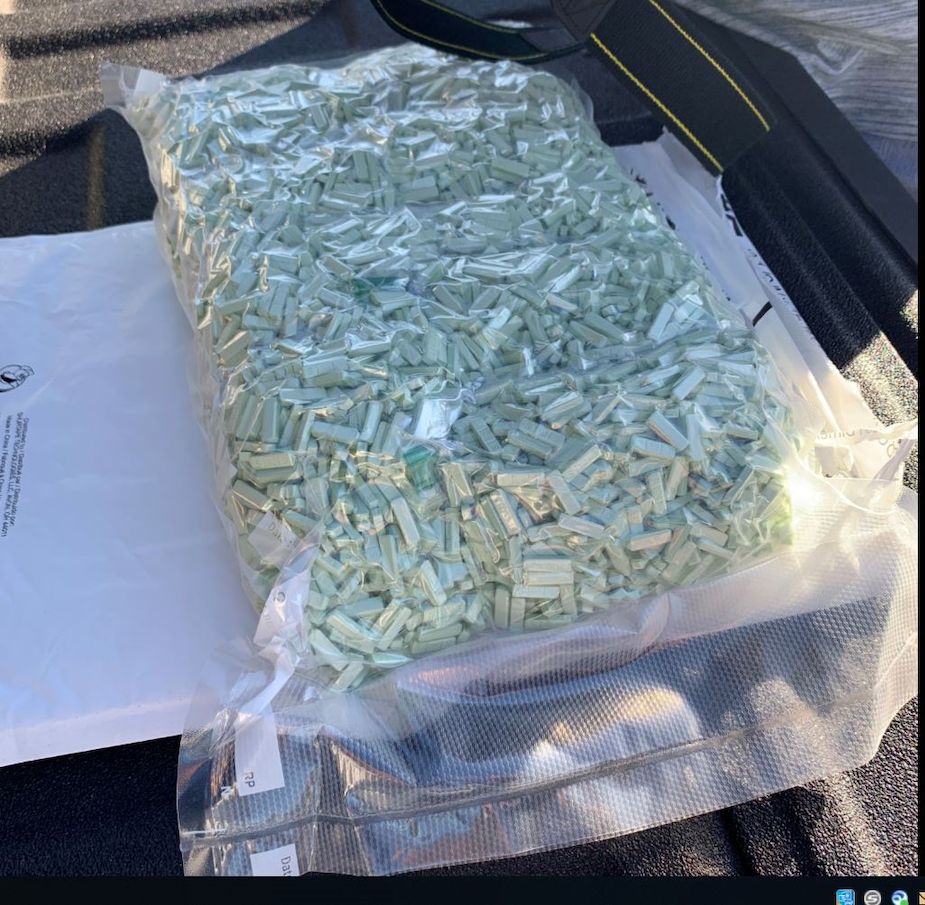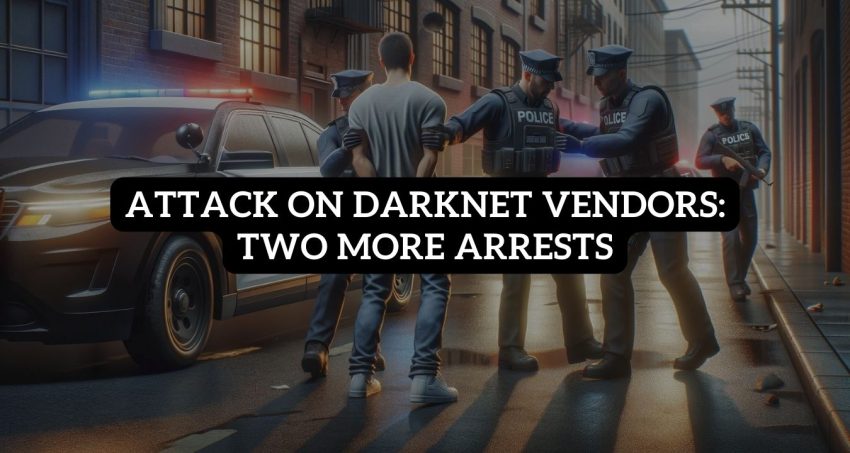Since Operation SpecTor last year, there’s been a worldwide focus on Darknet Vendors. Hydra’s removal proved that while Darknet Market seizures do make a difference in the drug trafficking world, it takes a lot less resources and ends up playing a way larger role when Darknet vendors are arrested instead. In 2024, we’ve seen hundreds of darknet vendors arrested already, with news coming out almost everyday. The FBI, DOJ, Interpol, and Dutch Law Enforcement have been the most effected.
Today we’re seeing two more vendors arrested and sentenced, a Seattle man who purchased over 630 thousand Xanax pills as well as a Stanwood Man who received a ten year sentence for his role in selling Opiods on the Darknet.
Key Insights
- Operation SpecTor and Hydra: Focus on darknet vendors has increased following these operations, shifting from market seizures to vendor arrests.
- Recent Arrests:
- Maximillian Gregory Verbowski of Seattle was sentenced to five years for buying 630,000 counterfeit Xanax pills on the dark web.
- Christerfer Frick of Stanwood was sentenced to over 10 years for selling opioids online; they previously served nine years for similar offences.
- Both cases involved extensive use of the darknet markets, cryptocurrencies, and postal services for drug trafficking.
- Charges included conspiracy to sell counterfeit drugs, selling counterfeit drugs, and using fictitious names for postal fraud.
- Verbowski was prosecuted by the U.S. District Court in Seattle, with the FBI, DEA, U.S. Postal Inspection Service, and Homeland Security Investigations involved.
- Frick’s operations were revealed to include a network over the dark web, emphasizing the need for community protection due to his criminal history.
The effectiveness of targeting darknet vendors as opposed to entire markets has become increasingly apparent, with recent law enforcement actions underscoring this strategy’s benefits. Unlike shutting down entire markets—which often leads to the quick emergence of replacement markets—targeting individual vendors disrupts the supply chain more directly and permanently. According to studies, this method is not only less costly and time-consuming than whole-market shutdowns but also significantly dampens drug-dealing activities on the darknet by deterring other potential vendors through the demonstration of law enforcement’s reach and effectiveness.
The approach of arresting vendors, as seen in operations like the first nationwide undercover operation targeting darknet vendors, has led to substantial seizures and arrests, severely impacting the darknet’s operational capacity. Additionally, the strategic shutdowns of major markets like Hydra Market by combined German and U.S. forces not only nabbed millions in illicit funds but also set back the infrastructure that supports the broader darknet market ecosystem
These focused actions proved the effectiveness of pin-point strikes against individuals and small groups over the blanket targeting of entire platforms, which can quickly regenerate. This method not only disrupts immediate illegal activities but also gathers crucial intelligence that can lead to further operations, multiplying the impact of initial enforcement actions This is why we’re seeing multiple vendor attacks across the world.
Seattle Resident Sentenced for Purchasing 630,000 Xanax Pills on Dark Web
A Seattle man who pleaded guilty to purchasing 630,000 counterfeit Xanax and other pills on the dark web was sentenced to five years in prison and ordered to pay a $10,000 fine.
Maximillian Gregory Verbowski, a 29-year-old Seattle resident was sentenced on Thursday to five years in prison and a $10,000 fine, followed by 36 months of supervised release for purchasing counterfeit drugs on the dark net.

In June, Verbowski pleaded guilty to U.S. District Court Judge Stephen R. Clark to one count each of conspiracy to sell counterfeit drugs, selling counterfeit drugs, and using a fictitious name on mail to commit a crime.
What We Know About the Incident
According to an indictment order, from October 2019 to August 30, 2021, Maximillian Gregory Verbowski conspired and purchased misbranded generic equivalents of Xanax on the darknet.
Verbowski sourced the counterfeit pills on Wickr Me from a darknet vendor by the name of “TheBenzoBoys.” Verbowski allegedly acted under the pseudonym “Packlord206” on Wickr Me and paid for the products with cryptocurrency and US currency.
The darknet vendor allegedly produced the counterfeit pills with imprint stamps, and a pill press machine capable of producing counterfeit pills from “dry components with a production rate of 16, 200 pills per hour.”
According to the indictment order, his supplier is believed to have obtained ingredients to manufacture the fake Xanax pills by mail from various sources in China.
To avoid being detected by law enforcement authorities, Verbowski rented several post office boxes in Seattle, Washington under the alias “Eric Ritter,” “Vladimir (Vlad) Klokov,” and “Sam Ashley.” After placing an order on Wickr Me, he would then instruct his supplier to mail the pills to one of these post office addresses.
Having received the counterfeit pills, Verbowski would then redistribute the counterfeit pills to various customers in the State of Washington.
Little is known about Verbowski’s arrest, however, his indictment order in reveals several cryptocurrency transactions linking him to his darknet vendor. The case was investigated by the FBI, the Drug Enforcement Administration, the U.S. Postal Inspection Service and Homeland Security Investigations. Assistant U.S. Attorney Kyle Bateman is prosecuting the case.
Stanwood Man Sentenced to Over 10 Years for Dark Web Opioid Sales
SEATTLE — A Stanwood, Washington man, Christerfer Frick, 49, has recently been sentenced to 121 months in federal prison after he had been found guilty of selling drugs like fentanyl and heroin through the dark web. The sentencing happened after Frick recently finished a nine-year term for also drug-related crimes.
Frick’s Dark Web Operations and Arrest
Court documents showed that Frick carried on with his drug dealing very shortly after his previous arrest, working with a network on the dark web to distribute deal opioids. Over his thirty-year criminal career, Frick has worked up an impressive record, which includes offenses related to firearms, theft, forgery, and multiple drug trafficking convictions.
This latest arrest happened after Frick was arrested in May 2021, which was part of an investigation into drug trafficking operations where he used the dark web. At the time of this recent arrest, he was still under supervised release. The authorities reported that they had discovered 2.7 kilograms of heroin and fentanyl in an unlocked safe in Frick’s garage, which he also used to fulfill his customer’s orders by mail.
His Consequences and Needed Community Protection
U.S. District Court in Seattle handed down the sentence, stressing the need to protect the community from Frick’s continuous criminal behavior. “The fact that you immediately turned to drug dealing shortly after release from prison indicates the court needs to protect the community,” stated U.S. District Judge Richard Jones during the sentencing.
U.S. Attorney Gorman stated how reckless Frick’s actions were, also showing the risks put on his household and beyond. “Mr. Frick delivered potentially deadly drugs to customers across the country, with little concern for the lives he damaged or destroyed,” Gorman said. “He stored large amounts of deadly drugs in a home he shared with two small children, leaving them accessible to these children or their friends with potentially tragic consequences.”
“Christerfer Frick has been on a crime spree that has lasted for over thirty years. He has dozens of convictions, including brandishing a firearm, eluding, escape, theft, harassment, forgery, counterfeiting, and drug trafficking. The only thing that has stopped Frick from committing crimes is custody. After serving that nine-year sentence, Frick promptly sought out the dark web fentanyl and heroin network that led to the charges in this case.”
Given how serious his crimes were and the amount of drugs involved, the mandatory minimum sentence for his charges was set to only ten years. This arrest also accounts for other violations of his supervised release terms. The prosecution argued that Frick’s persistent criminal behavior that he showed a clear and ongoing risk to public safety, making it necessary for a large custodial sentence to bring a stop to any possible further offenses.

